The School of Engineering & Applied Science’s faculty participates in and leads many Centers focused on research and science and engineering interdisciplinary initiatives. Below are just some of the resources available to the research community.
|
The Center for Research on Interface Structure and Phenomena (CRISP) shared facilities consist of both specialized and general instruments with a specific research focus. The general purpose instruments are mostly used by the Yale research community with limited use by outside users. CRISP is currently in the process of expanding access through membership in NSF's Materials Research Facilities Network.
The more specialized instruments are used to grow thin films using oxide molecular beam epitaxy (MBE). These tools can grow materials with a precision of an atomic layer. Yale has the highest concentration of oxide MBE tools in the world and makes contributions toward next-generation electronic devices.
|
 |
|
The Cleanroom is operated as an internal service provider to the Yale community, and recovers some of its operating costs through user fees and access fees. The Cleanroom serves over 90 graduate students, research associates, and postdoctoral associates, and supports research in Electrical Engineering, Applied Physics, Mechanical Engineering, Biomedical Engineering, Cell Biology, and Physics. There are currently three full time staff members consisting of a Cleanroom Director and two technicians, who are responsible for training new users, maintenance and repair of equipment and facilities, and to provide process engineering consultation and technical assistance as requested.
|
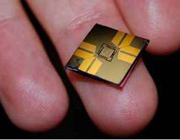 |
|
The SEAS Machine Shop assists students, staff, and faculty on original educational and research projects by conceiving, designing, and constructing apparatus and instrumentation for the support of research and instructional projects.
The SEAS Machine Shop equipment consists of basic machine shop machines such as milling machines, lathes, band saws, drill presses, some small sheet metal tools such as sheet metal shear, brake, roll, and hole punch and a variety of hand tools. Also, the shop has some CNC machining and MIG welding capabilities.
|
 |
|
The Cell Sorter Core Facility provides comprehensive flow cytometric analysis and sorting including instrumentation, technical support, training and consultation.
|
 |
|
The Yale Chemical and Biophysical Instrumentation Center (CBIC) is a comprehensive collection of analytical instruments for scientific research supervised by a professional staff. We are located in Sterling Chemistry Laboratory, Chemical Research Building, and Bass Laboratories.
|
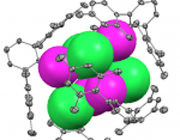 |
|
The Department of Chemistry maintains a fully equipped glassblowing facility to benefit the Yale scientific community. The Yale Glass Shop, located in SCL 014, works closely with scientists, researchers, and skilled craftsmen to provide affordably priced standard and non-standard items, glassware modifications, and custom designs.
|
 |
|
The DNA Analysis Facility supports the applications of DNA Sequencing and Fragment Analysis of Microsatellites and AFLP's. The facility is housed in the Yale Institute for Biospheric Studies Molecular Systematics and Conservation Genetics Center, enhancing training within the MSCG Center by allowing students to obtain genetic information from large data sets in a time frame that is appropriate to their academic schedules.
|
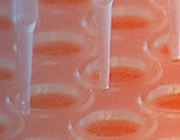 |
|
The Earth System Center for Stable Isotopic Studies was established with the completion of the stable isotope facility in Class of 1954 Environmental Science Center (ESC). The Center is devoted to the study of the environment using the latest technology and ideas in light stable isotope research, and serves as a meeting point for both Yale and external scientists to exchange ideas and develop new approaches to the study of the environment.
|
 |
|
The Gibbs Machine Shop has served the research community at Yale for over 35 years. The shop provides expert conceptual design, custom manufacturing, engineering and prototyping to enhance faculty research. The mission of the Gibbs Shop is to provide access to expertise that will allow researchers to develop designs for, and have fabricated, custom equipment in to support cutting-edge research within FAS.
|
 |
|
The Yale University microprobe facility houses a JEOL JXA-8530F (FEG) "Hyperprobe" - electron probe microanalyzer (EPMA; aka electron microprobe analyzer, EMPA) - installation of which began in April 2009. This EPMA/SEM functions with state-of-the-art imaging, analytical, and computer-control capabilities. This probe configuration includes five wavelength-dispersive spectrometers (WDS) and a light-element-capable energy-dispersive spectrometer (EDS) with Windows-XP processing software. Hardware and software allow automated operation and data collection, and software accommodates advanced image processing and feature analysis. Additional instrumental details can be accessed here. This lab also includes a turbo-pumped Emitech carbon evaporator/coater, which also includes metal evaporation capability. Jim Eckert is available to answer questions and assist users with all forms of analysis.
|
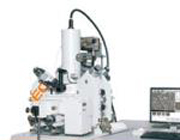 |
|
The Yale University (Geology & Geophysics) XRD facility houses an automated Scintag PAD V diffractometer installed in 1988. This diffractometer includes a two-circle (2-theta, omega) goniometer, Cu target X-Ray tube, and a liquid-nitrogen cooled germanium semiconductor detector. This type of detector enhances signal to noise ratios over those obtained with the standard scintillation detectors. Additional hardware available includes a transmission pole-figure (azimuth scan) sample holder.
|
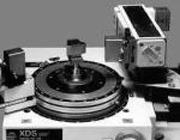 |
|
High Performance Computing (HPC) powers a range of research initiatives led by Yale professors and graduate students across the University. Scholars in fields from neurobiology and applied physics to economics and sociolinguistics depend on state-of-the-art computational systems to analyze and model massive amounts of data. The Yale HPC Group designs and operates clusters of computers, known as compute nodes, that are networked to provide data processing speed and capability that would have been unheard of a mere decade ago.
|
 |
|
The Molecular, Cellular and Developmental Biology Department hosts several advanced facilities for optical imaging of live cell studies, deep tissue imaging, time-lapse acquisition, multimode imaging and FRAP analysis, and much more. The facility maintains two confocal microscopes in KBT; two SEMs and a TEM in OML.
|
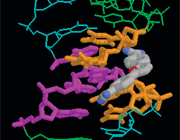 |
| The PET Center is comprised of a technologically advanced radiochemistry laboratory engaged in the development and use of a rich set of PET radiopharmaceuticals labeled with the most common PET isotopes (11C, 15O, 13N, and 18F); and an imaging and data analysis section that oversees scanning procedures and optimizes data acquisition and analysis. |
 |
| The mission of the FAS Science Research Software Core is to provide investigators with affordable access to widely used and specialized software for applications common to the physical sciences. It will also assist investigators in taking full advantage of this software, and employs a full time specialist to accomplish this important goal. For the initial stage of its implementation, the software acquired by the Core will be specific to the fields of Physics, Applied Physics, Chemistry and Computer Science. However, this software is available to all faculty, postdoctoral students, and graduate students within the FAS to encourage interdisciplinary collaboration. |
 |
| The Keck Biotechnology Resource Laboratory provides 150 genomic, proteomic, biostatistical, bioinformatics, and high performance computing technologies to hundreds of Yale and non-Yale investigators whose research otherwise might not benefit from the highly sophisticated and expensive instrumentation upon which biological and biomedical research is increasingly dependent. |
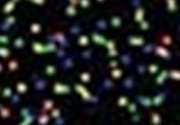 |
| The Yale Center for Molecular Discovery provides biology and chemistry services to the Yale community. Drawing upon the extensive experiences of our staff in the fields of target and molecular discovery, the Center offers access to small molecule compound and siRNA collections as well as expertise and instrumentation for high throughput assay design and execution. Our approach is service-oriented and results-driven. |
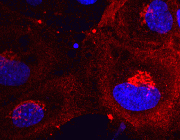 |
| The MRRC is an interdepartmental and interdisciplinary research laboratory that provides state-of-the-art MR equipment, infrastructure, and expertise for the development and application of MRI and MRS methodology in biomedical research. Research is focused on the study of intact biological systems by developing methods for obtaining structural, functional, physiological and biochemical information by MRI, MRS and other techniques. |
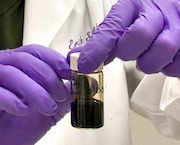 |
| The mission of the Yale Institute for Nanoscience and Quantum Engineering is to develop collaborations centered on nanoscale research projects among those in a variety of scientific disciplines, in order to make substantial advances in understanding and technology. |
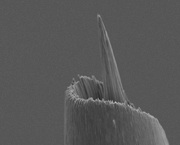 |




















